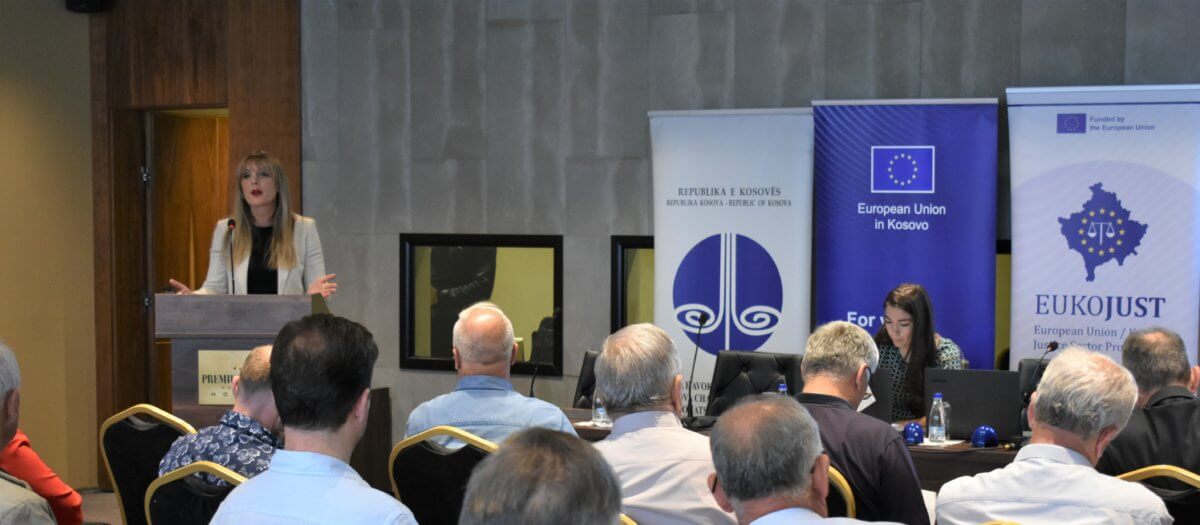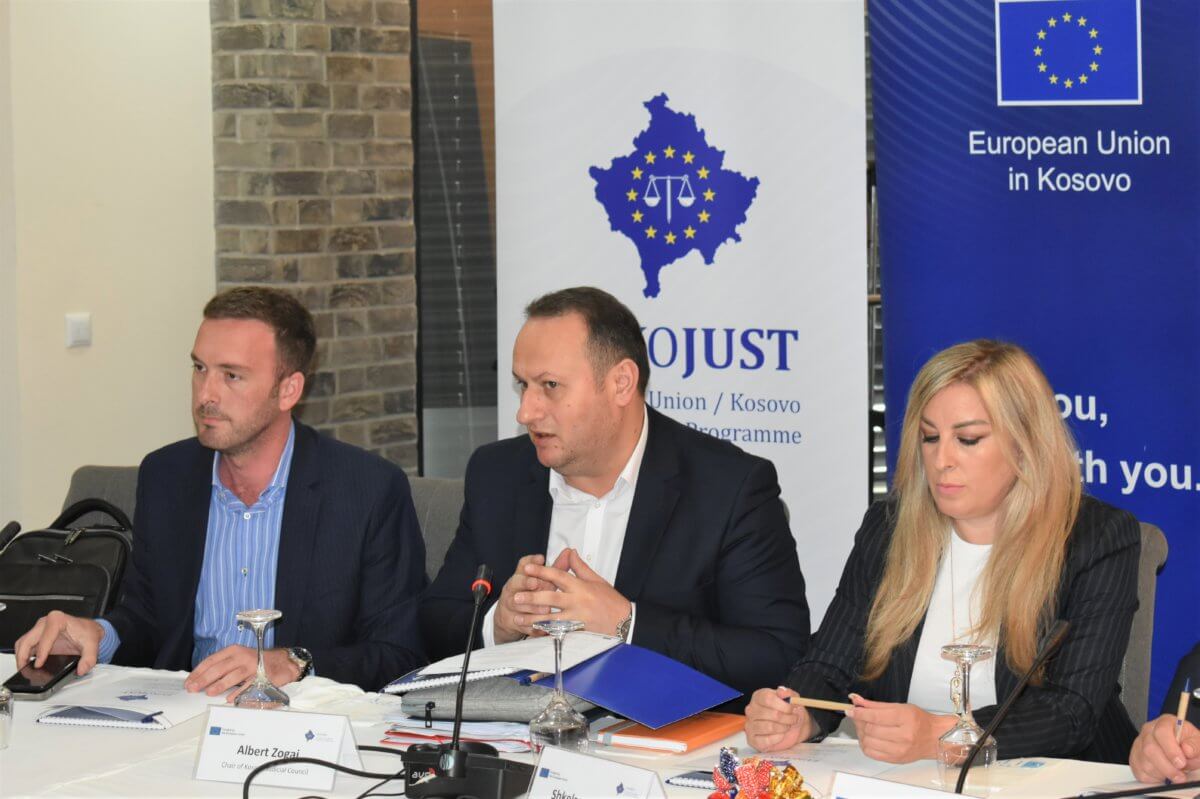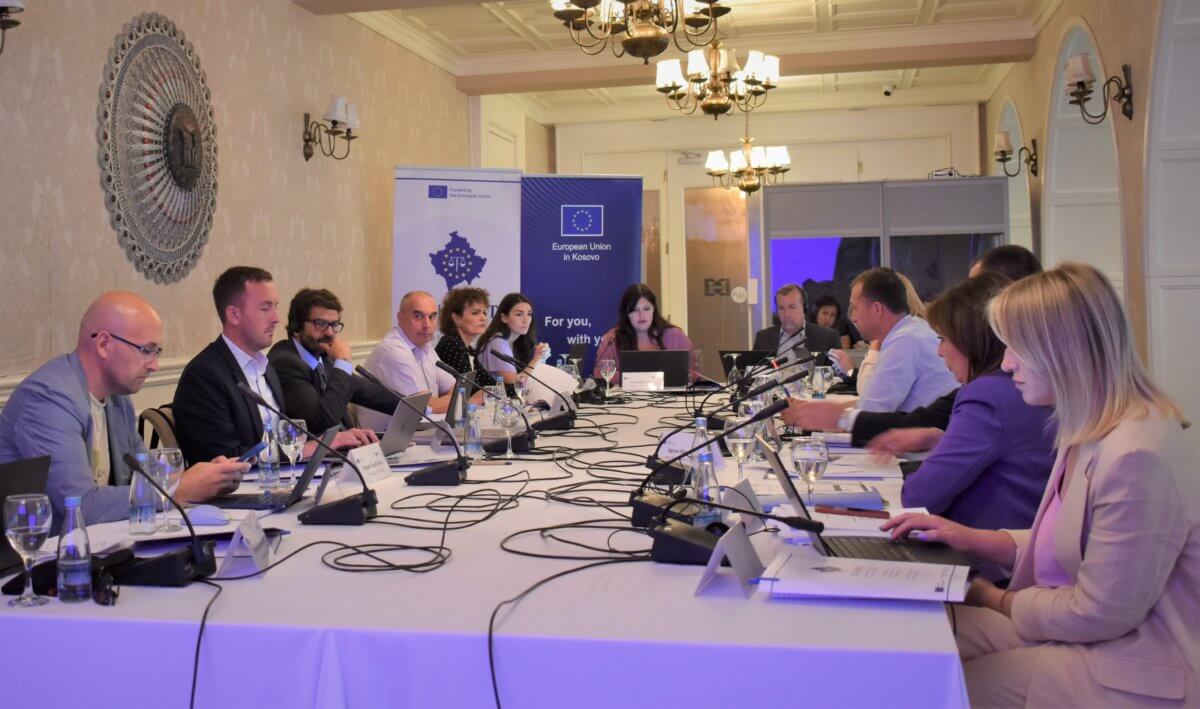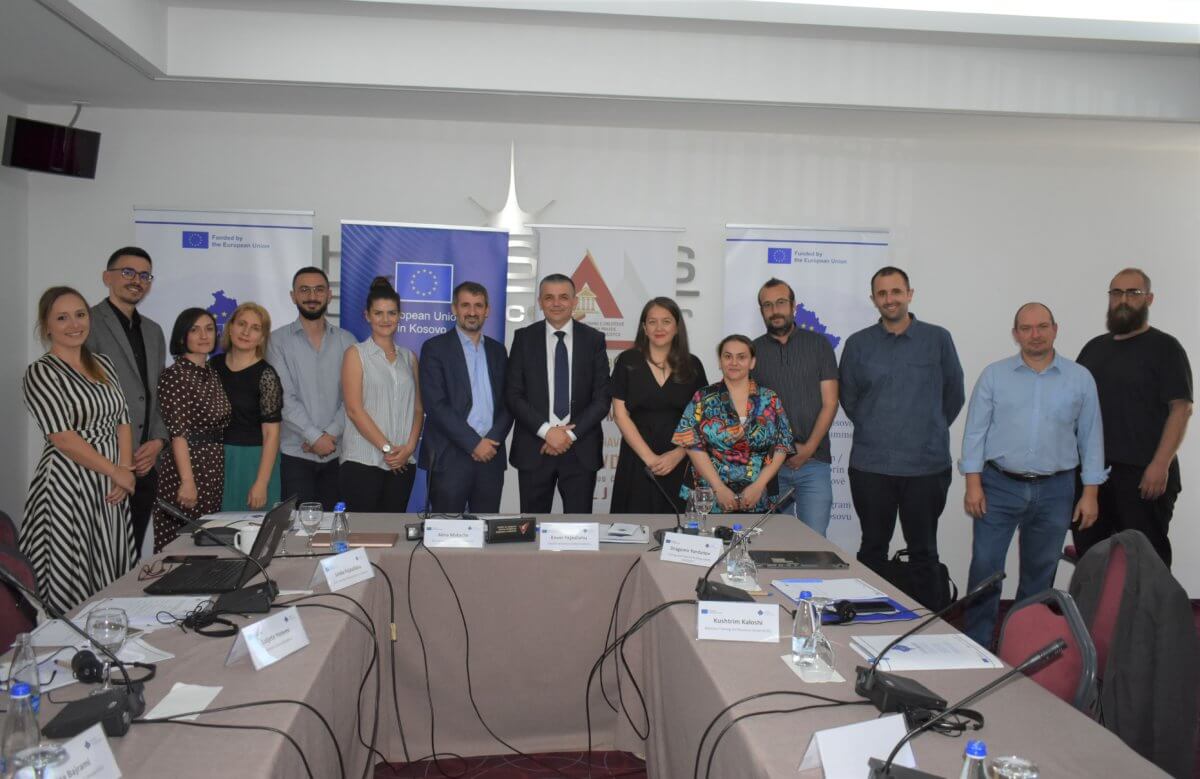Building professional capacities of lawyers on the international and national legal framework for protection from domestic violence was the focus of a one-day training held in Prizren. The training was organised in cooperation with the Kosovo Bar Association (KBA) and delivered by the EUKOJUST Long Term Expert on Public Legal Education / Domestic Violence and Marginalized Groups Bardhë Krasniqi and Legal Advisor Nita Bejta. Almost 70 lawyers from the Prizren region licensed by the KBA attended the training.
“The Role of the Lawyer in representing the victims of Domestic Violence,” training also aimed at building the soft skills of lawyers to understand the dynamics of domestic violence situations – as part of the continuous legal education programme under the KBA umbrella.
The trainers discussed the need to apply human rights standards such as the Istanbul Convention, CEDAW – Convention on the Elimination of All Forms of Discrimination against Women, ECHR – European Convention on Human Rights and the use of ECtHR – European Court of Human Rights case law in the Kosovo legal practice. This training raised the standard of practice for lawyers who will deal with Domestic Violence cases and will equip lawyers practicing in all areas with the necessary tools to handle Domestic violence or to screen for domestic abuse and provide appropriate legal advice when domestic violence has been identified as an issue.
The participants highly appreciated this training and benefited both from the professional point of view and from the good experience of the trainers.
The training was delivered under the EUKOJUST project’s specific objective of strengthening access to justice for all citizens in Kosovo, particularly in the field of domestic violence and disadvantaged or marginalized groups.












